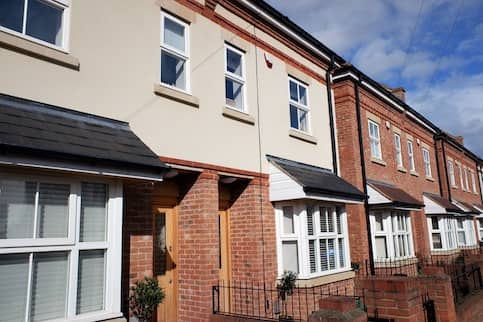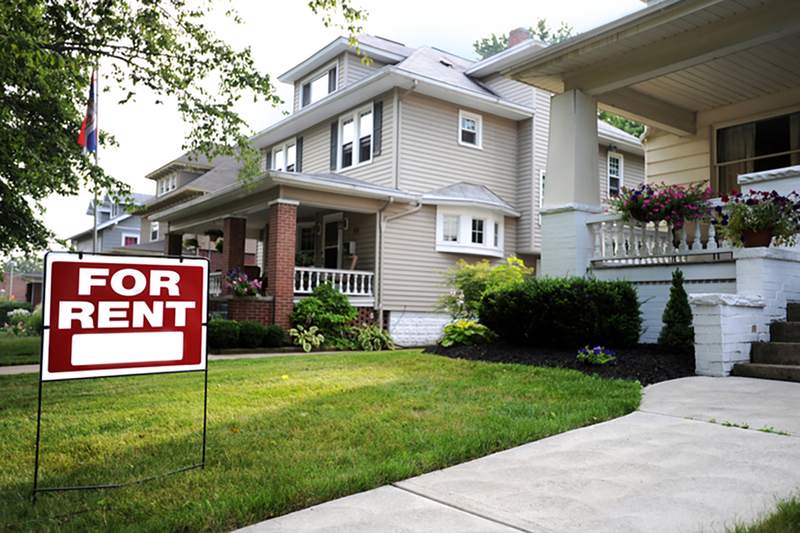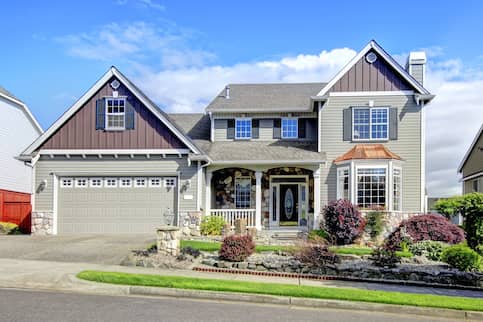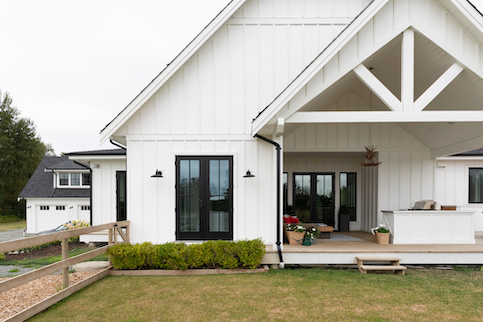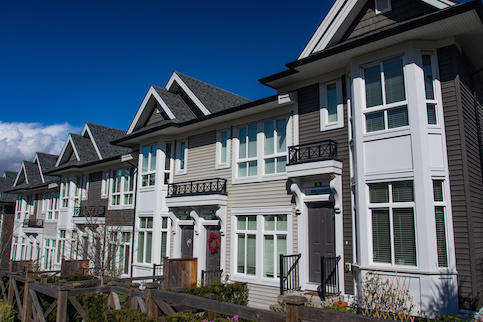Federal Housing Administration (FHA) mortgage loans, which are government backed, have more lenient qualification requirements than conventional loans. However, they’re not used to fund the purchase of an investment property, with an exception. If you’re willing to commit to treating one unit of a multi-unit investment property as your primary residence for at least a year, an FHA loan may be a great option for you.
In short, you can use an FHA loan for an investment property if you’re willing to live there.
For example, a real estate investor could purchase a fourplex, live in one unit, lease the other units out and get a return on investment from the rental payments they collect. You’ll also need to meet some other criteria, which we’ll discuss later.
What Are FHA Loans?
FHA loans – backed by the Federal Housing Administration through the Department of Housing and Urban Development (HUD) – help Americans achieve their goal of homeownership. Low-to moderate-income families typically benefit most from an FHA loan because it requires a low down payment and the debt-to-income ratio (DTI) requirement is more relaxed. Many first-time home buyers use an FHA loan for the same reasons, as well as assistance programs to lower closing costs and help with a down payment.
FHA loans are also considered nonconforming mortgages because they don’t meet the standards of Fannie Mae or Freddie Mac for a property purchase.
See What You Qualify For
Buy A Home
Discover mortgage options that fit your unique financial needs.

Refinance
Refinance your mortgage to have more money for what matters.
Tap Into Equity
Use your home’s equity and unlock cash to achieve your goals.
Can You Use An FHA Loan For An Investment Property?
You can only use an FHA loan to buy an investment property if the property is also your primary residence and meets all other FHA loan criteria. Because most real estate investors don’t plan to live in their investment properties, FHA loans usually don’t work for them.
For example, if you discover an affordable multiunit property while searching for properties to flip, consider purchasing the property, living in one of the units and renting out the other units to offset the monthly mortgage payment and potentially turn a profit. You’ll just need to make sure the residence meets all FHA loan requirements.
FHA Loan Requirements
The most important requirement of an FHA loan is that it funds the purchase of a primary residence. Here are the other requirements you must meet to qualify:
- The home must be appraised and approved by an FHA appraiser.
- The appraisal must state that the house meets minimum property standards.
- You must move into the home within 60 days of the closing date. Borrowers must live in the property for at least 1 year.
How To Use An FHA Loan For Investment Properties
While FHA loans for investment properties aren’t usually permissible, there are exceptions where you can treat a residence purchased with an FHA loan as an investment property or get FHA loan approval for an investment property. Let’s take a closer look in the next few sections.
Rent Out Your Primary Residence
If you relocate for your job and need to buy a second home, you may be allowed to rent your current home purchased with an FHA loan as long as you lived there for at least 1 year. The rental income from your tenants should cover your mortgage payments.
Purchase A Multiunit Home
As mentioned, you can purchase a multiunit property with up to four units with an FHA mortgage. All the units can be occupied by tenants except one, which you must live in to meet your FHA requirements. Technically, a home with up to four units is a single-family residence, and a home with five or more units is considered a multi-family home. If your home meets the requirement of having two to four units and one unit is owner-occupied, you should be fine.
Depending on the rental income from your tenants, you may be able to stay at your property at essentially no monthly cost – and even earn a profit from your tenants’ rental payments.
Purchase A Fixer-Upper With An FHA 203(k) Loan
FHA loans have minimum property requirements, but FHA 203(k) loans allow FHA home buyers to buy homes that fail to meet the FHA’s minimum property standards. With an FHA 203(k) loan, you can bundle the cost of repairing the home into the mortgage.
Again, you’ll have to live in at least one unit of the home. But just like standard FHA loans, FHA 203(k) loans are for properties with up to four units.
Refinance Your FHA Loan
If you bought a home with an FHA loan and meet the minimum occupancy requirement, you may be able to refinance your FHA loan to a conventional mortgage. If your credit score is higher and your income has increased since your original purchase, you may qualify for a conventional loan or another type of home loan – with fewer rules for investment properties.
This may allow you to turn a primary residence into an investment property and also improve your loan terms. For instance, you may end up with a lower interest rate and monthly mortgage payment. If you have more than 20% equity in your home, you’ll be able to remove private mortgage insurance (PMI) upon refinancing to a conventional mortgage.
Consider An FHA Streamline Refinance
Once you’ve lived in your FHA-financed house for at least 210 days after closing, an FHA Streamline Refinance might be an option – and allow for a better interest rate and lower monthly payments. But you’ll still have an FHA loan and need to meet all requirements mentioned above for an FHA loan investment property.
How You Can Have More Than 1 FHA Loan At A Time
As discussed, it’s possible to use an FHA loan for rental or investment property in some atypical situations – two of which revolve around having more than one FHA loan at a time, which isn’t generally allowed. For example, as mentioned earlier, the FHA may grant an exception to a homeowner who needs to relocate for work. You also might qualify for an exception if you need a new home to accommodate a growing family, as long as you have 25% equity in your first home.
You’ll need to provide the mortgage lender with evidence of your situation during the loan application process.
The Bottom Line: In Rare Situations, You Can Buy A Rental Property With An FHA Loan
Although FHA mortgage loans aren’t typically used to purchase investment properties, you can do this under certain circumstances – as long as you meet certain requirements.
Find out if an FHA loan is right for you.
See rates, requirements and benefits.

Victoria Araj
Victoria Araj is a Staff Writer for Rocket Companies who has held roles in mortgage banking, public relations and more in her 15-plus years of experience. She has a bachelor’s degree in journalism with an emphasis in political science from Michigan State University, and a master’s degree in public administration from the University of Michigan.
